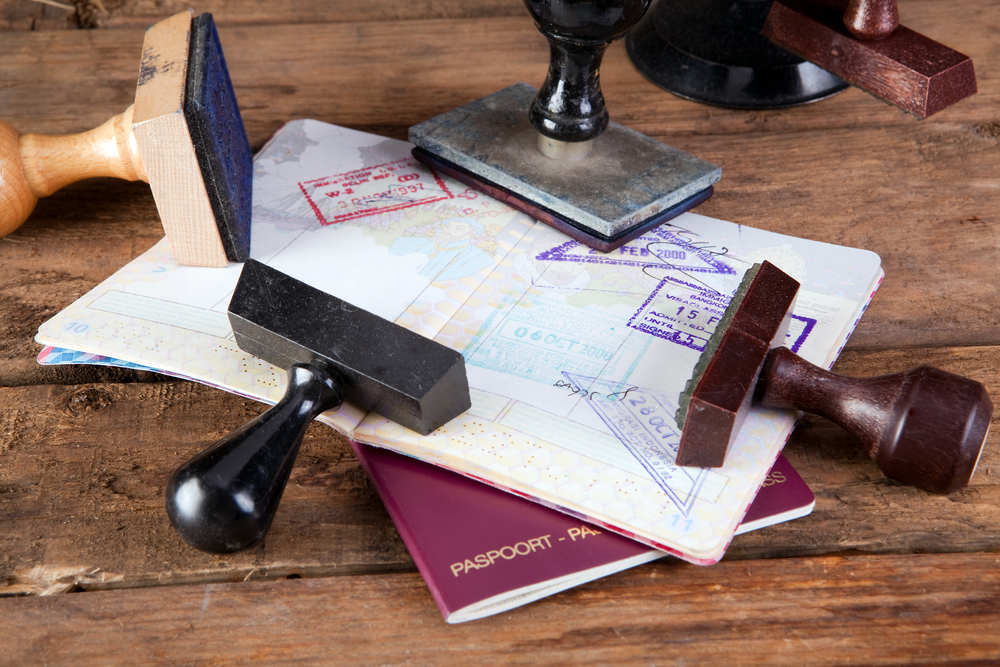Featured
You may sponsor your fiancé for a K-1 fiancé visa if you are a citizen of the United States. A K-1 visa will allow your fiancé to enter the country to marry you, after which they can utilize status adjustment to submit an application for a marriage green card. Permanent residents (Green Card holders) cannot apply for K-1 fiancé visas; the sponsoring fiance must be a US citizen.
What most people do when applying for a K-1 fiance visa is get a marriage visa lawyer, as applicants must provide a number of supporting documents to the U.S. government and meet certain requirements in accordance with U.S. immigration law.
What you should know
- The K-1 visa enables the foreign national to visit the country and marry the sponsor, a citizen of the United States, within 90 days of arrival. After being married, the foreign spouse may submit an application for status adjustment to become a permanent resident (green card holder).
- You must both be legally able to get married in the United States. Even though same-sex marriage is not permitted in the country of origin of the foreign national fiance, you are still eligible for a fiance visa if you are a same-sex couple.
- You both need to be unmarried. For the US fiancé visa requirements, you must provide evidence of the dissolution of any prior marriages that either of you had, such as death certificates or divorce judgments.
- Remember that while your US citizen fiance must earn 100% of the HHS Federal Poverty Guidelines in order to qualify for a fiance visa, in order for the foreign national to apply for permanent residence in the US, the US citizen petitioner must earn at least 125% of the HHS Federal Poverty Guidelines, unless the petitioner is on active duty in the US armed forces.

Before filing for a K-1 Fiance Visa
Before filing for a K-1 Fiance Visa, you must complete a number of tasks. It is wise to start tackling these tasks a few months before you submit your application for a fiancé visa because they frequently take planning and time to fulfil.
- In the two years before filing, see your fiancé at least once. Unless visiting would put either of you through significant difficulty or be against your respective cultures, religions, or societal mores, you must do this. This prerequisite must be met by the majority of persons.
- Take ten to fifteen time-stamped pictures of you and your fiancé. As much of the time you have spent together should be represented in these. It’s best to take as many photos as you can.
- Take time-stamped pictures with your fiancé’s loved ones. These will assist in showing your fiance that you are attempting to establish a permanent relationship.
- Collect evidence of your time spent with your fiance. Itineraries, hotel bills, restaurant tabs, shopping receipts, and other documentation of the time you spent with your fiance are all included in this evidence. The more supporting data you can offer, the better.
- Obtain a sample of communication from your relationship, such as call logs, text messages, emails, and so on, that demonstrates how long your relationship has lasted.
- Your application will be aided by letters of support for your marriage from close friends, relatives, and coworkers who are aware of your engagement. Usually, these should be in the form of letters that are signed and, if feasible, notarized.
- K-1 applicants must arrange and complete a medical examination conducted by a panel doctor before the interview.

What to bring for your interview for the K-1 Visa
Bring every petition, approval, and supporting documentation related to your case to the K-1 fiancé visa interview. Documents from the sponsor (fiance), a US citizen, are also included. Most of these products are not necessary. However, having them could save delays if the document is required.
It is advised that you bring the following paperwork with you to the interview for a K-1 visa:
The DS-160 Confirmation
You must electronically submit Form DS-160 via the U.S. State Department website (together with any eligible children filing for K-2 visas). You should print out the confirmation page proving you finished Form DS-160 and bring it with you to the interview.
Form I-129F, Alien Fiancé Petition
Bring along complete copies of the Form I-129F K-1 fiancé visa petition that was submitted to USCIS by the petitioner, a US citizen. All supporting documentation submitted with Form I-129F should be included in this document in its original form.
Notice of Action Form I-797 (notice of petition approval)
The I-129F petition was then granted, according to a photocopy of the USCIS letter.

An active passport
(Unless country-specific agreements grant exclusions) The passport’s validity should extend at least six months beyond the length of your expected stay in the United States.
Health assessment
The doctor shall send the K-1 recipient an unopened envelope that contains the exam findings and any optional vaccinations unless the results are delivered directly to the consulate.
I-134, the Affidavit of Support
A genuine Affidavit of Support written by the petitioner, an American citizen. All supporting documentation must be presented with the original, inked Affidavit of Support signed by the petitioner, a U.S. citizen. A copy of the petitioner’s most recent federal tax return as well as pay stubs are typical supporting papers.
Passport-style photographs
Two passport-style color images of you that were taken no more than 30 days before the interview are required.

Birth registration card
An eligible birth certificate must typically be in full form (and not an excerpt or short form), and it must be issued by the proper local government agency or civil authority.
A death certificate for any former spouse, or a divorce decree
If you or your U.S. citizen sponsor were previously married, you must provide proof that the union(s) was or were legally dissolved. A divorce judgment, annulment, or death certificate issued by a civil body are all acceptable forms of proof of the dissolution of past marriages.
Police clearance
A document from your current country of residence as well as any nation you have lived in for six months or longer since you were sixteen. For K-2 students who are 16 years old or older, police certificates are also necessary.
Fees paid
You have probably already paid the expenses for the DS-160, medical exam, and I-129F petition by the time of the interview. These are the most important K-1-related statistics.
Organize them so you can quickly find them during the K-1 interview. You must deliver a document swiftly if the consular officer asks for one.































